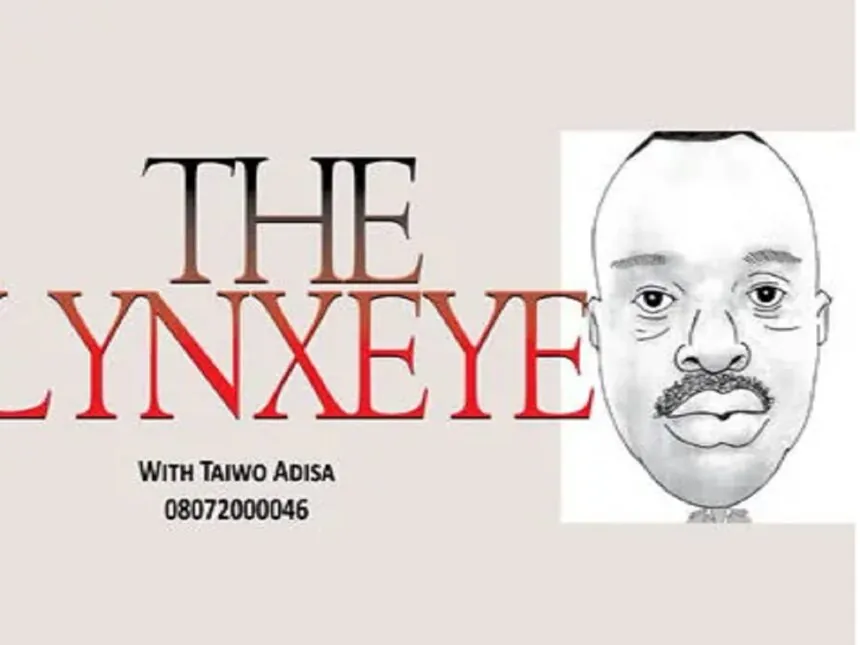IN the March 16, 1975, edition of The New York Times, Colin Legum broke down the comment earlier attributed to the then Head of State, General Yakubu Gowon which read like this: “Nigeria has the money, our problem is how to spend it.” Gowon’s remark, back then, might have been interpreted in different ways, but I think it is not only apt about Nigerian situation but also philosophical. Collins had reported that Nigeria’s trade surplus rose from $1.5 billion in 1973 to $6 billion in 1974 and that while crude oil accounts for 92 per cent of her earnings, the country’s oil supply to the United States doubled the volume of Saudi Arabia.
Back then, the leaders debated the options that could enable the country to spend its way out of the problem of “too much money.” These, according to Legum included the debates on the increase in the number of states from 12 to 20 or 24, adoption of the Udoji Commission Report, introduction of the free universal primary education for all school age children, and the increased spending on defence ahead of education and agriculture. Somehow, successive governments have succeeded in spending Nigeria out of prosperity into economic doom. Fifty years down the line, the country now stands to be counted amongst the comity of poverty-stricken nations.
In deference to the postulations of the International Monetary Fund (IMF), the administration of President Bola Tinubu adopted the twin policy of subsidy removal and floating of the naira in May 2023. The argument of the global financial conductors was that the Nigerian currency was “overvalued.” But when it shed weight, it was so massively done that local experts are already saying that the naira is undervalued to the tune of 26 per cent. Somehow, the twin Tinubu policies have returned Nigeria to the state it was when the statement credited to Gowon was made. Now, the tiers of government have money, but they are having problems managing it for future prosperity. But unlike the Gowon’s situation when Nigeria had money, today, only the tiers of government are buoyant, while the people languish in economic travails. Pius Mordi, writing in his “Frontrow” column in the Southerner on June 25, saw through the statement credited to the former Head of State when he wrote: “There is race among the state governors on who will build the most expensive and ineffectual and, perhaps, useless edifices. At first, it was airports in their capital cities. It costs a lot of money to build one and only the Federal Government built new ones in the Second Republic.”
Mordi gave an example of Governor David Umahi of Ebonyi State, who built a N53 billion airport in Abakaliki, only for the terminal to be turned into a Pentecostal assembly until the first ever commercial flight landed there on June 13, 2025, two clear years after it was commissioned with fanfare. Meanwhile, Abakaliki is a distance of 68 kilometres to Enugu, which has an existing airport.
Since President Bola Tinubu made the famous ‘subsidy is gone’ statement on May 29, 2023, the Federal Government, the states and the local governments have had their monthly allocations from the Federation Account Allocation Committee (FAAC) tripled from around N500 billion monthly under President Buhari, to more than N1.6 trillion. So, like Mordi said, the states are in a race to spend the money accruing from FAAC.
While no one can argue that government’s money is meant to be spent for the welfare of the people and infrastructural projects, because governments are not established as Profit and Loss (P& L) centres, it is equally undeniable that the resources are to be used to guarantee good governance. That is why different layers of government normally ensure that they use the money accruing to the coffers to generate wealth to ensure a certain future for their people. The Yoruba would say owo laa fi peena owo (you use money to create more wealth). That may be the thinking behind IMF’s policy framework on subsidy removal. The drift should be that the government should make more money, and use is to transform the lives of its people. But merely seeking to translate European or American policy trust to an African setting cannot achieve the desired result. Here, with our kabiyesi mentality to governance, any money the government generates first goes to service the welfare of those in government. And the people would readily hail the government for doing so.
This is exactly why the Marshal Plan failed woefully in Africa, Asia and Latin America. The Plan developed to develop the war-ravaged Western Europe after the Second World War, worked wonders by helping to bring back the affected areas. But it failed badly in the Third World when applied in the 1960s because those behind it failed to consider the socio-cultural environment of the Third World as distinct from Europe. Yes, IMF achieved a leg of its policy by amassing money in the hands of governments in Nigeria, but that is yet to translate into good life for the citizens.
This is because, with more money in the hands of African governments, the leaders think more of how to dispense the funds, starch some away in foreign lands and fritter the balance on frivolities. That is why one of the first steps the Nigerian Governors Forum took when the Tinubu government started the implementation of its IMF-inclined policies was a trip to Rwanda for a retreat on democratic governance. You want to ask what 36 state governors in Nigeria want to learn about democratic governance in Rwanda that would warrant them landing in that country with huge entourage. What is the nature of that retreat that cannot be held in Transcorp, Abuja or Obudu Cattle Ranch, Port Harcourt or Lagos? Some states even sponsored the entire members of their houses of assembly on tours of different countries, just to create avenues to spend the money. Meanwhile, the citizens have continued to languish under the pangs of skyrocketing inflation, rising consumer goods, debilitating insecurity and an apartheid-like power supply policy.
Emeritus Professor of Communication, Andrew A. Moemeka, writing on the topic: “Development, Social Change, and Development Communication: Background and conceptual Discussion,” in a book of readings he titled Development Communication in Action, submitted that the Marshall Plan, used to rebuild Western Europe was hugely successful and that in less than ten years, it “turned destruction and devastation into construction and industrialization.” He stated that: “Europe was not just brought back to life, but given a higher standard of living than it had before the war.” He admitted, however, the Marshal Plan failed in the developing countries because the former colonial masters failed to see the peculiarities in the different societies and apparently confused information as synonym for communication. He said that “in a cultural environment, where socio-cultural and material aspects of life are treated as a holistic entity, it is impossible to succeed with attempts to improve the material with little or no regard to the socio-cultural.” This is the same foul IMF/World Bank policy experts are committing with the implementation of their policies in Nigeria, especially. In the Western world, and largely Asia, these days, when governments make money, it translates to a good life for the citizens. But in Nigeria and Africa, government money is first meant for the good of the government and its system. The few people who benefit from the crumps are those who can roll on the floor at the feet of the power holders. That perhaps answers why the many years of implementation of IMF/World Bank policies have failed to redeem the aches of African economies.
One way I think we can address the anomaly identified in Mordi’s “Frontrow” is to create more states across the six geopolitical zones. When government is closer to the people, there would be a sense of belonging and rather than collect money to cast votes, (amounting to sale of birthright), each citizen would see himself as a potential Rep member, senator, governor, or president. The state creation exercise this time should take the number of states to at least 50, and a corresponding increase in the number of local governments, which could rise to 1,000. The logic here is that we will reduce the amount of money available to be wasted. Luckily, the National Assembly is presently undertaking a constitution review exercise, where at least 31 requests for states have been submitted. It is a chance for the lawmakers to take the agitators for state creation through the process as contained in Section 8 of the 1999 Constitution (as amended). My preference is that the states to be created should be made contiguous to tribals/ethnic/dialect orientations, such that can guarantee political self-determination by each tribe or dialect. For instance, if you take the South-West Nigeria, the Ibadan in the present Oyo State should be a state, while Ogbomoso can also choose to stand alone or seek alliance with neighbouring Oyo and Iseyin. The Oke Ogun and Ibarapa can jointly own a state under. The Ijebu of the Ogun State have been seeking a state for years; nothing should stop that from coming into reality. The same should go for the people of the South-East. The Ukwa/Ngwa people of the present Abia State can own a state, while the Old Bende axis can unite in another. In the South-South, the people of Warri had designed the city as a potential state capital and this exercise can bring that to pass. Ethnic groups and tribes in the South-South, North-Central, North-East and North-West can come together to form states. In a state like Kogi, the Okun people should be given the option of either merging with Ekiti State or standing alone, while in Benue State, the Utukpo people of Benue South and their neighbouring communities shouldn’t find it difficult to form a state. The Tiv in that state have already shown their capability to stand alone. Our people should be given the freedom to unite with those they see as their true kit and kin. One advantage of this is that it will help us solve the series of ethnic tension that usually erupt in different states and massively help ethnic nationalities to control their political fortunes. There is also this reality that at least three types of political actors seek/grab power at the sub-national level in Nigeria these days. These include those who seek power for personal aggrandizement, those who seek power to develop themselves and the community, (of course this group has the fewest people on the line) and those who seek power as a business venture. They invest and must make their gains. These are the people who make it a duty to siphon the funds, which they relocate to some places they believed their fortunes are guaranteed. So, if these are the categories of people that would keep exchanging the batons of power among themselves in the states, why retain the IMF/World Bank model of amassing money in the hands of the states and expect a miracle.
Of course, the argument would be raised about the cost of governance and about the viability of new states. I will insist till tomorrow that every state is viable in Nigeria. The political actors are either lazy, spoilt by the feeding-bottle federal system or insincere. If we create more states, it will enable the sub-nationals to explore the neglected sources or revenue and also spread the available resources among the citizens. There would be less money to be packed in some mysterious boxes and landed in unknown locations outside our shores. If more states are created, there would be more government staff to be employed, more government secretariats to build, more Government Houses, more roads to dualise in the capital city and more public buildings to house government’s departments and agencies. A homogeneous state would allow the elders to speak to the office holders in the language of the ancestors (apologies here to the revered monarch, Omo N’oba N’Edo Eku Akpolokpolo, Oba Erediauwa) about development and if they fail to do so, they will have nobody to blame.
READ ALSO: Reps extend deadline for submission of memoranda on state creation
WATCH TOP VIDEOS FROM NIGERIAN TRIBUNE TV
- Let’s Talk About SELF-AWARENESS
- Is Your Confidence Mistaken for Pride? Let’s talk about it
- Is Etiquette About Perfection…Or Just Not Being Rude?
- Top Psychologist Reveal 3 Signs You’re Struggling With Imposter Syndrome
- Do You Pick Up Work-Related Calls at Midnight or Never? Let’s Talk About Boundaries







